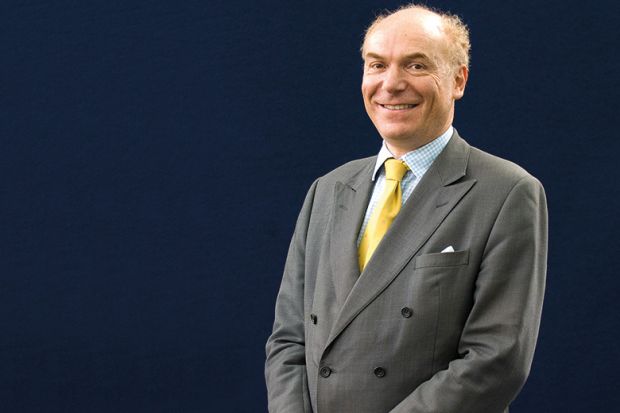Terence Kealey is probably best known for his tenure at the helm of the University of Buckingham, Britain’s pioneering private university, from 2001 to 2014. But before that he was a lecturer in clinical biochemistry at the University of Cambridge – and even then had some notably maverick views on how science should be funded.
“I got into science funding in 1985,” he says, “when the University of Oxford refused [Margaret] Thatcher an honorary degree on the grounds that she was destroying British science. My problem was that I had just finished my PhD in Oxford and was working at Newcastle University – and we couldn’t fit everyone in. The rate of expansion was so rapid that we were just spilling out into the corridors. We didn’t have enough lab space for all the new scientists we were employing. So I said [to Mrs Thatcher’s critics]: ‘We’re having to build all these new labs, and you’re saying British science is in decline!’”
After investigating further, Kealey eventually produced a 1996 book, The Economic Laws of Scientific Research, which, he once told Times Higher Education,“stated quite categorically that governments should not fund science or higher education”.
Since leaving Buckingham, he has spent much of his time at the libertarian Cato Institute in Washington DC, exploring these issues further. He has also drawn on personal experience, as well as his background as a biochemist, to produce a polemical book called Breakfast is a Dangerous Meal: Why You Should Ditch Your Morning Meal for Health and Wellbeing.
This arose out of Kealey’s 2010 diagnosis as a Type 2 diabetic, when he was offered the standard advice that he should not skip breakfast. But he was also given his own personal glucometer. What he soon discovered, he writes, is that not only were his glucose levels “dismayingly high first thing in the morning” but that they “would rise much further, indeed hazardously, if I ate breakfast”. His anger at receiving such bad medical advice spurred him to produce what he calls “essentially a chronicle of a century-old mistake”.
Although the book obviously goes into detail about carbohydrates and cholesterol, “diabesity”, metabolic syndromes and “yo-yo diets”, Kealey believes that the essential story is “unbelievably simple. Middle-class people live on average seven years longer than working-class people. Middle-class people also tend to eat breakfast, because ‘everyone knows’ it’s the most important meal of the day and middle-class people tend to do what they are told.”
This central fact, Kealey continues, means that it is “easy to produce associations. Look, here are all these people, they eat breakfast and live seven years longer than another group. Therefore, breakfast must be good for you.
“You could, if you wanted, dissect that, and ‘show’ that eating breakfast protects you against lung cancer – but no one would believe you. You could even show, according to the Japanese data, that if you make your daughters eat breakfast, they will lose their virginities two years later than girls who don’t eat breakfast. No one publishes that data, because they know that it can’t possibly be cause and effect.”
So why have so many researchers made the most elementary error of confusing correlation with causation?
Although Kealey admits that part of the problem is that breakfast research has often been funded by cereal companies, he also stresses the perverse impact of incentives. “As a scientist, you want to publish the papers that the journal editors and funders will accept. But if you flout the dominant paradigm, your papers are not going to get the grants and your career will stall. It is absolutely in your interest to publish papers that reinforce existing paradigms.”
What Kealey urges us to do, therefore, is to “move beyond the idea that a scientific paper is a balanced, judicious piece of work. Scientists are advocates, not judges. They get out there to verify a paradigm. It is analogous to a lawyer in court putting one point of view.”
Whatever their mistakes in interpretation, Kealey is convinced that researchers almost invariably present their data honestly. Yet he has nonetheless adopted the kind of radical scepticism more often applied to politicians: “When I was getting into the breakfast research, I realised that the only way to read a paper in the literature, even if it came from Harvard University or Cambridge, was to ask myself: ‘What are these lying bastards lying to me about now?’”
Terence Kealey’s Breakfast is a Dangerous Meal: Why You Should Ditch Your Morning Meal for Health and Wellbeing has just been published by 4th Estate.
POSTSCRIPT:
Print headline: Breakfast? Don't make me sick, says scholar
Register to continue
Why register?
- Registration is free and only takes a moment
- Once registered, you can read 3 articles a month
- Sign up for our newsletter
Subscribe
Or subscribe for unlimited access to:
- Unlimited access to news, views, insights & reviews
- Digital editions
- Digital access to THE’s university and college rankings analysis
Already registered or a current subscriber? Login





